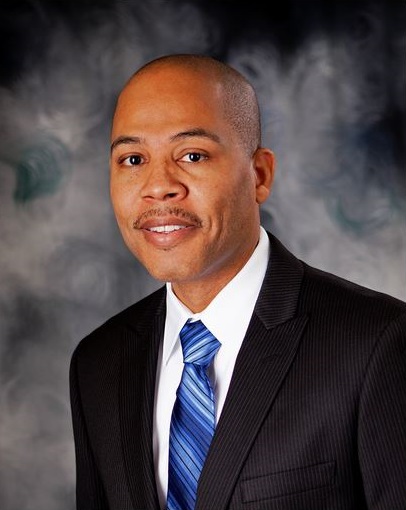Can a single voice truly shift the course of history? The struggles and triumphs of the civil rights movement, particularly the fight for voting rights, emphatically answer this with a resounding yes. The legacy of Selma, etched in the annals of American democracy, serves as a potent reminder of the power that lies within each individual vote, a power once denied to so many.
The echoes of Selma, Alabama, resonate still, a testament to the enduring spirit of those who dared to challenge the status quo. The events of the 1960s, culminating in the Selma to Montgomery marches, were not just about gaining the right to vote; they were about claiming a fundamental human dignity. The very essence of democracy, of self-determination, was at stake. The courage displayed by ordinary citizens, facing down violence and intimidation, ultimately paved the way for the Voting Rights Act of 1965, a landmark achievement that reshaped the American political landscape.
Amelia Boynton Robinson, a pivotal figure in the Selma movement, famously declared, “A vote-less people is a hopeless people.” Her words, imbued with the weight of lived experience, offer a clear and concise summation of the stakes involved. They encapsulate the understanding that without the right to participate in the electoral process, individuals and communities are effectively silenced, their voices unheard in the corridors of power. The fight for voting rights, therefore, became inextricably linked with the fight for social and economic justice, for equality, and for the promise of a better future. The program, A Voteless People is a Hopeless People (VPHP) initiated by the Alpha Phi Alpha Fraternity, Inc., embodies this sentiment.
| Attribute | Details |
|---|---|
| Name | Amelia Boynton Robinson |
| Born | August 18, 1911, Savannah, Georgia |
| Died | August 26, 2015, Montgomery, Alabama |
| Nationality | American |
| Education | Tuskegee Institute (now Tuskegee University) |
| Occupation | Civil Rights Activist, Suffragist |
| Key Activities | Voting rights activist, organizer of the Selma to Montgomery marches. Founding vice president of the Dallas County Voters League. |
| Key Accomplishments | Played a crucial role in the Selma movement, leading to the passage of the Voting Rights Act of 1965. |
| Organizations | Dallas County Voters League, National Council of Negro Women |
| Significant Quotes | A vote-less people is a hopeless people. |
| Reference | National Park Service - Amelia Boynton Robinson |
The genesis of the A Voteless People is a Hopeless People initiative can be traced back to the 1930s. During this period, even though many African Americans possessed the theoretical right to vote, systemic barriers, such as poll taxes, literacy tests, and outright intimidation, effectively disenfranchised them. Alpha Phi Alpha Fraternity, Inc., recognizing the urgency of the situation, spearheaded this national program to address these challenges head-on. The program aimed to educate, mobilize, and empower Black communities to exercise their hard-won right to vote. Branches across the nation, including those in Detroit, and the Eastern Region of Alpha, actively participated in voter registration drives, educational campaigns, and advocacy efforts. The initiative was not merely about registering people; it was about fostering a sense of civic responsibility and encouraging active participation in the democratic process.
The program found resonance in the work of organizations such as the National Association for the Advancement of Colored People (NAACP). The NAACP, recognizing the critical importance of voting rights, amplified the message through its local branches. The NAACP's Baltimore City Branch, for instance, utilized signs to urge both new and existing residents to register to vote, solidifying the importance of electoral participation. This collaborative approach, involving various organizations, demonstrated the widespread understanding of the vital connection between voting and progress.
The Selma to Montgomery marches were a watershed moment in this struggle. Beginning on March 7, 1965, with Bloody Sunday, when peaceful protestors were brutally attacked by state troopers, the marches galvanized national attention and exposed the systemic oppression faced by Black Americans in the South. Despite the violence and intimidation, the marchers persisted. The courage of these individuals, men, women and children, was captured in the media, broadcasting images of police brutality and the protestors' resolve. These images shocked the nation, helping to garner support for voting rights legislation.
The Voting Rights Act of 1965, enacted on August 6, 1965, was a direct outcome of the Selma protests. This landmark legislation outlawed discriminatory voting practices, such as literacy tests, that had historically been used to prevent African Americans from voting. It authorized federal oversight of elections in states with a history of discrimination. The act significantly increased African American voter registration and participation, fundamentally altering the political landscape. The impact was immediate and profound, and the increased participation resulted in more diverse representation in government at all levels, and a greater responsiveness to the needs of minority communities.
The fight for voting rights, however, didn't end with the passage of the Voting Rights Act. The struggle for fair and equal access to the ballot box continues today. Efforts to suppress voting, through gerrymandering, voter ID laws, and other tactics, remain an ongoing challenge. The legacy of Selma, therefore, calls on us to be vigilant, to remain committed to protecting and expanding voting rights. It is a continuous responsibility to defend the fundamental principle that everyone should have the ability to make their voice heard at the ballot box.
The A Voteless People is a Hopeless People slogan serves as a powerful reminder, but it is also the need to actively engage in and protect the democratic process. The program itself serves as a historical touchstone, a point of reflection on the significance of suffrage, and an encouragement for consistent civic engagement. By staying informed, participating in elections, and advocating for policies that protect and expand voting rights, we honor the legacy of those who marched in Selma and who continue to fight for a more just and equitable society. Frances Albrier, during her time as president of the San Francisco Chapter of the National Council of Negro Women (NCNW), compiled a scrapbook. The scrapbook highlights the Chapter’s efforts to register voters and educate Bay Area residents on the importance of voting as a part of the Citizenship Education Project which was jointly sponsored by the NCNW and the National Urban League.
The lessons learned from the Selma movement extend beyond the realm of voting rights. They offer insights into the dynamics of social change, the importance of nonviolent resistance, and the critical role of grassroots activism. The movement highlighted the power of ordinary people to challenge injustice, the transformative potential of solidarity, and the enduring impact of moral courage. The story of Selma reminds us that progress is not automatic; it requires persistent effort, unwavering determination, and a deep commitment to the ideals of justice and equality. The fight for voting rights is inextricably linked to the larger quest for a more just and equitable society.
The struggles in Selma are a powerful story about the fight for voting rights and a source of inspiration to communities that continue to face discrimination and disenfranchisement. The commitment of Amelia Boynton Robinson and all those who marched and fought for the right to vote continue to have value to this day. Every election, every policy change, every act of civic participation builds on that legacy, ensuring that a vote-less people does not become a hopeless people.



